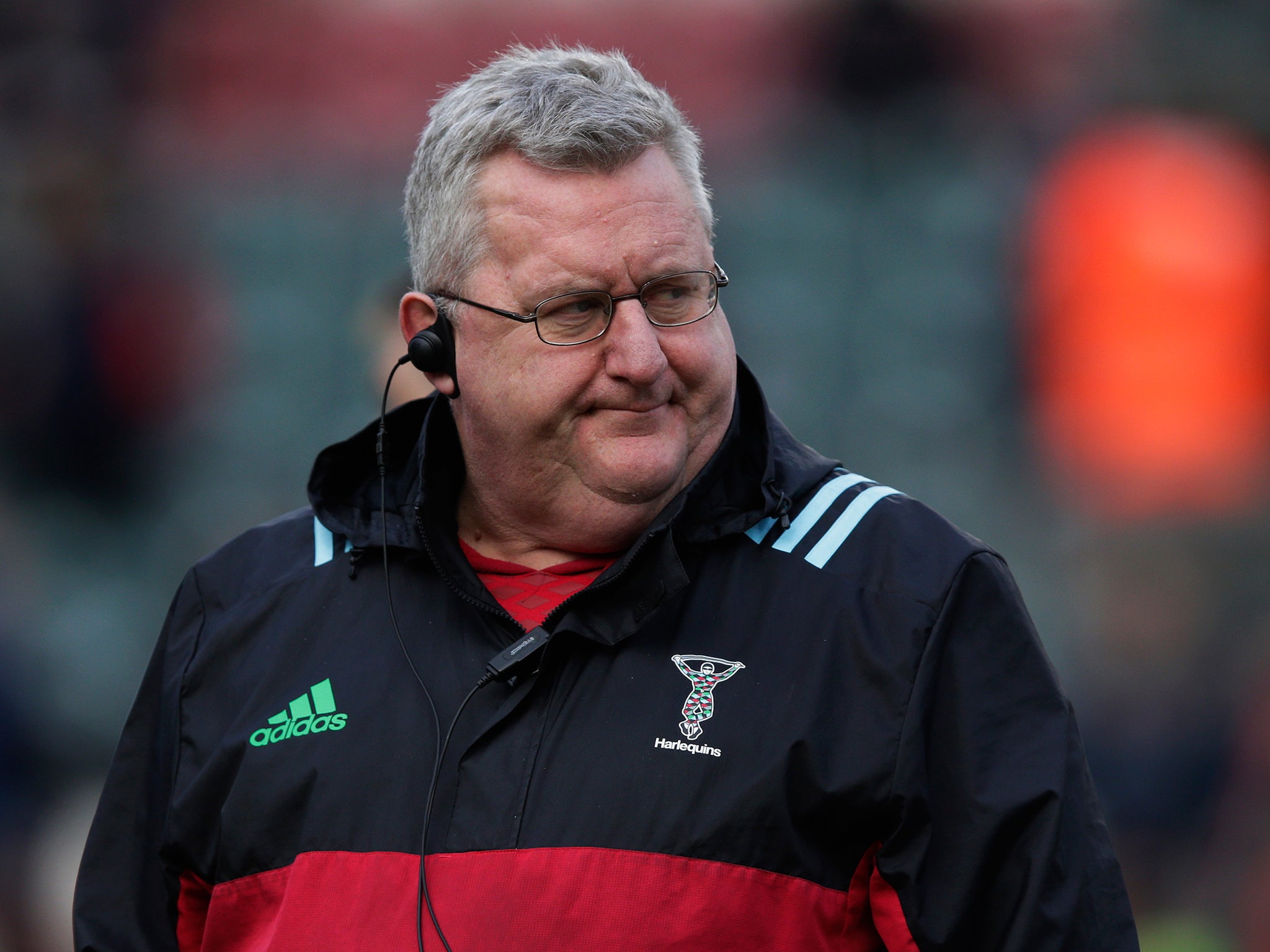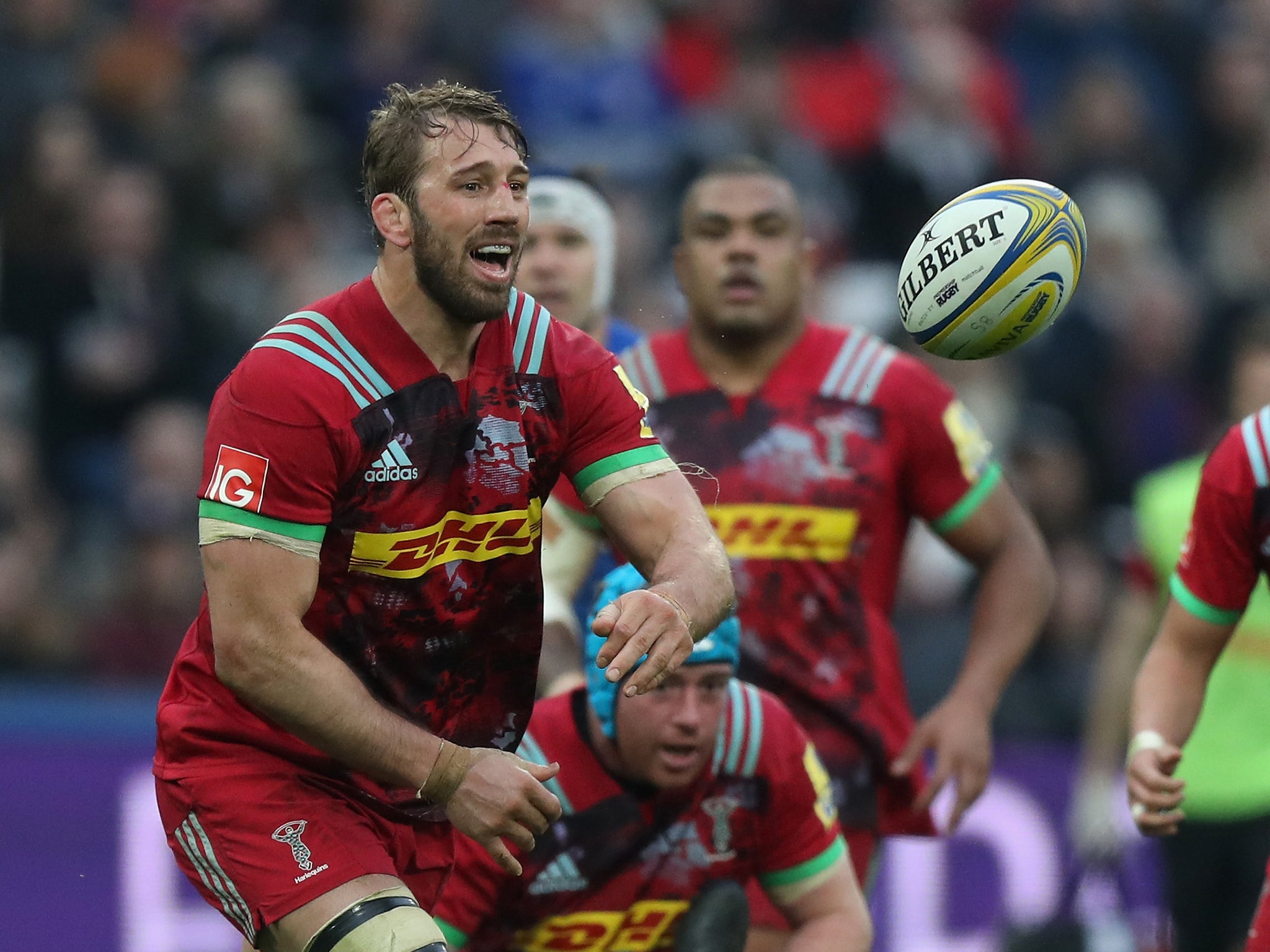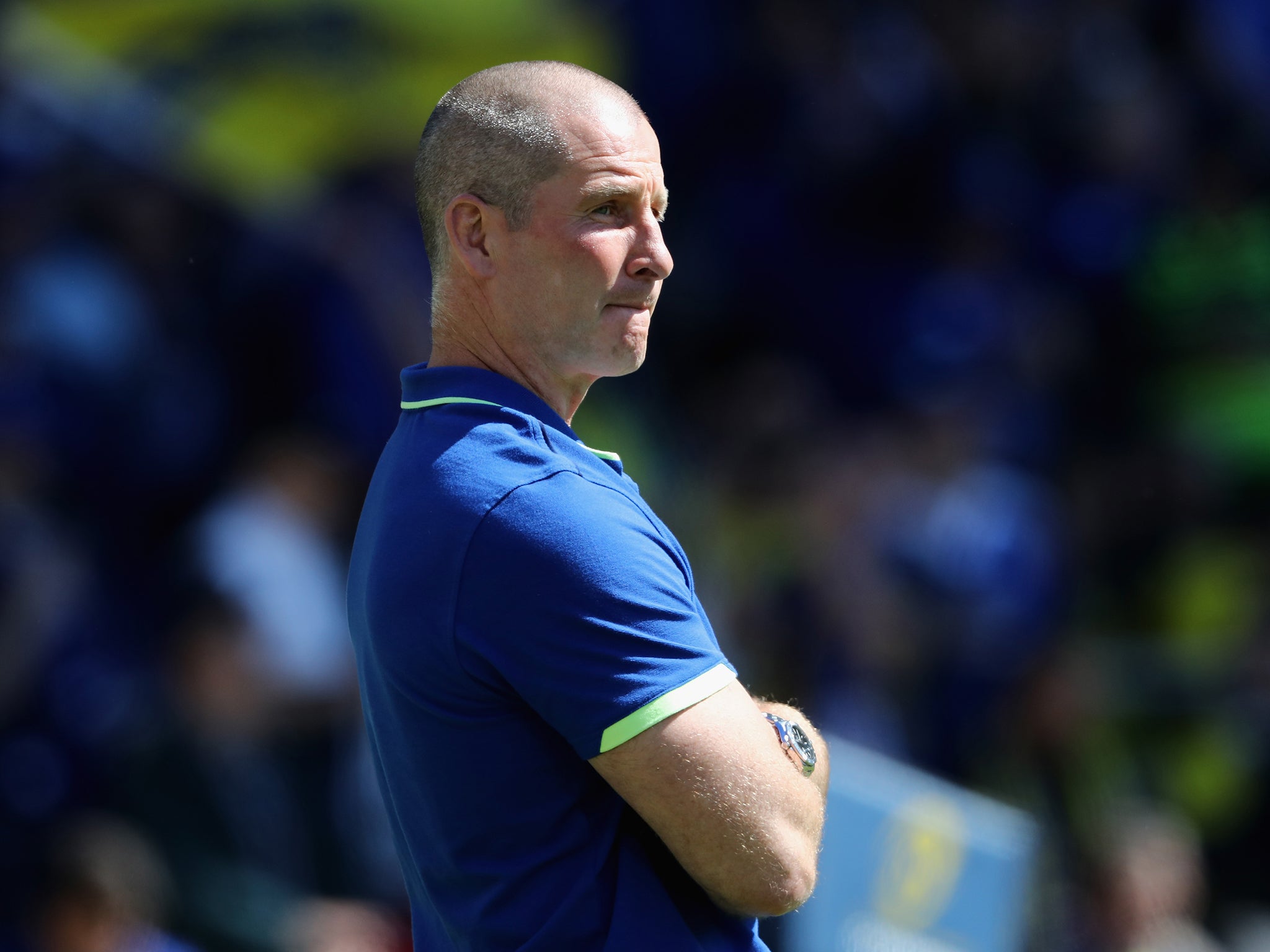As long as Premiership relegation exits, clubs will hire-and-fire coaches and prove rugby is no different to football
John Kingston’s imminent departure, the third director of rugby to be sacked this season, will not be the last in a sport where a win-first culture is the be all and end all

Your support helps us to tell the story
From reproductive rights to climate change to Big Tech, The Independent is on the ground when the story is developing. Whether it's investigating the financials of Elon Musk's pro-Trump PAC or producing our latest documentary, 'The A Word', which shines a light on the American women fighting for reproductive rights, we know how important it is to parse out the facts from the messaging.
At such a critical moment in US history, we need reporters on the ground. Your donation allows us to keep sending journalists to speak to both sides of the story.
The Independent is trusted by Americans across the entire political spectrum. And unlike many other quality news outlets, we choose not to lock Americans out of our reporting and analysis with paywalls. We believe quality journalism should be available to everyone, paid for by those who can afford it.
Your support makes all the difference.More wailing and gnashing of teeth this week as John Kingston followed two other Premiership head coaches out of the exit and rugby’s inexorable move towards football-style hire-and-fire culture dawned ever more brightly.
Kingston, an affable rugby man promoted from within the Harlequins ranks by chief executive David Ellis in April 2016 following Conor O’Shea’s departure, paid the price for a disastrous season which hit the rockiest of bottoms with last Saturday's barely believable 35-3 home defeat to bottom club London Irish. Quins players hung their heads as they were booed from the Twickenham Stoop pitch. Forty-eight hours later, Kingston was handed his P45.
Quins insisted this week his departure at the end of this season is “by mutual agreement” just as they did when Marland Yarde was shown the door in October following a series of disciplinary problems.
It was, of course, nothing of the sort. Kingston, who only signed a new two-year contract extension in January, got the bullet as the result of results. Nothing more, nothing less.
Twelve defeats in 19 Premiership games and an absolute no-show in the European Champions Cup was too much for Ellis and his board to take. The decision to extend Kingston’s contract at the time seemed strange. It looks worse than that now.
“John has been here my whole career, so it is extremely sad for a man who is so passionate about the club, so enthusiastic and who supports the guys so well,” said Harlequins former captain Chris Robshaw. “It is tough to take for everyone but we are rallying round him.
“[The result] on the weekend was one of the lowest moments. When you have lost to a fellow London team who are bottom of the table, by a bonus point and barely scored a try, and are booed off your own pitch, it hurts.”
But while there is quite rightly sympathy for Kingston, a good man with Harlequins in his soul, it cannot have come as a surprise to anyone to see him follow Jim Mallinder (Northampton) and Nick Kennedy (London Irish) in being ushered to the exit door.
Much as some attempt to convince us otherwise, rugby does not occupy a higher moral plain to other sports like football.
It is now measured just as any other; win and your job is safe, lose and you’re gone.
For as long as promotion and relegation exists (and who knows how long that will be for), results will always be the be all and end all. Relegation to the Championship does not bare thinking about for Premiership clubs whose precarious financial models hardly work even if they are playing regular European Champions Cup rugby season after season.
Anything less, for clubs like Northampton and Harlequins operating near the top of the salary cap, spells financial Armageddon.
With Gary Gold also sent on his way from Worcester, it is no coincidence the Premiership’s bottom four clubs will all kick off next season with new directors of rugby in situ. Whether they are all overseas-born directors of rugby remains to be seen although suggestions Stuart Lancaster may be lured home from Leinster seem fanciful.
Three years ago, after Lancaster paid the price for England’s failure to qualify from the pool stages of their own World Cup, a group of Quins internationals made representations to Ellis insisting he was not suited to the “Harlequins way” and he was overlooked for a coaching position.

How Ellis must be regretting that call now but there appears too much history between Lancaster and the current crop of senior Quins stars for a return to be possible.
Besides, why would he run the risk of returning to a club who will be looking to the foot of the table, rather than the top, come the start of next season?
Rugby faces some tough choices. Either it accepts coaches will be hired and fired based solely on the results of the team they run, with all the accompanying compromises to player welfare, style of play and financial stability.
Or it choses another path where the Premiership is ring-fenced, in part at least, jobs are protected on and off the pitch, while players can be rested and skills improved.
We simply can’t have it both ways.

Tomorrow at Welford Road 25,000 fans will watch a game between two of English rugby giants; one fallen, one resurgent.
The resurgent one – Leicester – sacked director of rugby Richard Cockerill last season and things are slowly starting to turn around under Matt O’Connor and their hugely influential new forwards coach Mark Bakewell.
Northampton, who delayed sacking Mallinder until it was almost too late in December last year, remain in spiralling freefall as Hurricanes boss Chris Boyd sees out his contract in New Zealand before arriving at Franklin’s Gardens next season. It is a horribly painful season on so many levels for Saints supporters.
Sacking coaches, especially ones as loyal and decent as Kingston and Mallinder, hurts. But so does relegation from the Premiership.
For as long as we have one, we will always have the other.
Join our commenting forum
Join thought-provoking conversations, follow other Independent readers and see their replies
Comments